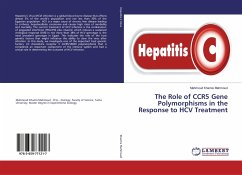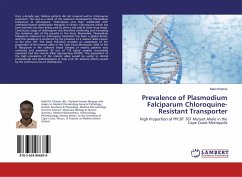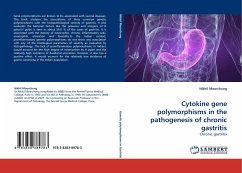
The Role of CCR5 Gene Polymorphisms in the Response to HCV Treatment
Versandkostenfrei!
Versandfertig in 6-10 Tagen
36,99 €
inkl. MwSt.

PAYBACK Punkte
18 °P sammeln!
Hepatitis C Virus (HCV) infection is a global blood borne disease that affects almost 3% of the world's population and not less than 20% of the Egyptian population. HCV is a major cause of chronic liver disease leading to cirrhosis, hepatocellular carcinoma and causes high rates of morbidity and mortality. The current treatment of HCV infection is the combination of pegylated interferon (PEG-IFN) plus ribavirin which induces a sustained virological response (SVR) in not more than 38% of HCV genotype 4, the most prevalent genotype in Egypt. This indicates the role of the host genetic factors th...
Hepatitis C Virus (HCV) infection is a global blood borne disease that affects almost 3% of the world's population and not less than 20% of the Egyptian population. HCV is a major cause of chronic liver disease leading to cirrhosis, hepatocellular carcinoma and causes high rates of morbidity and mortality. The current treatment of HCV infection is the combination of pegylated interferon (PEG-IFN) plus ribavirin which induces a sustained virological response (SVR) in not more than 38% of HCV genotype 4, the most prevalent genotype in Egypt. This indicates the role of the host genetic factors that might influence the ability to clear the virus after infection. In this study, we investigate one of the important host genetic factors, CC chemokine receptor 5 (CCR5-59029 polymorphism) that is considered an important component of the immune system and had a critical role in determining the outcome of HCV infection.












